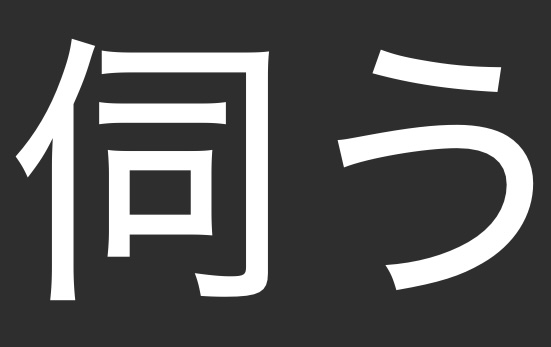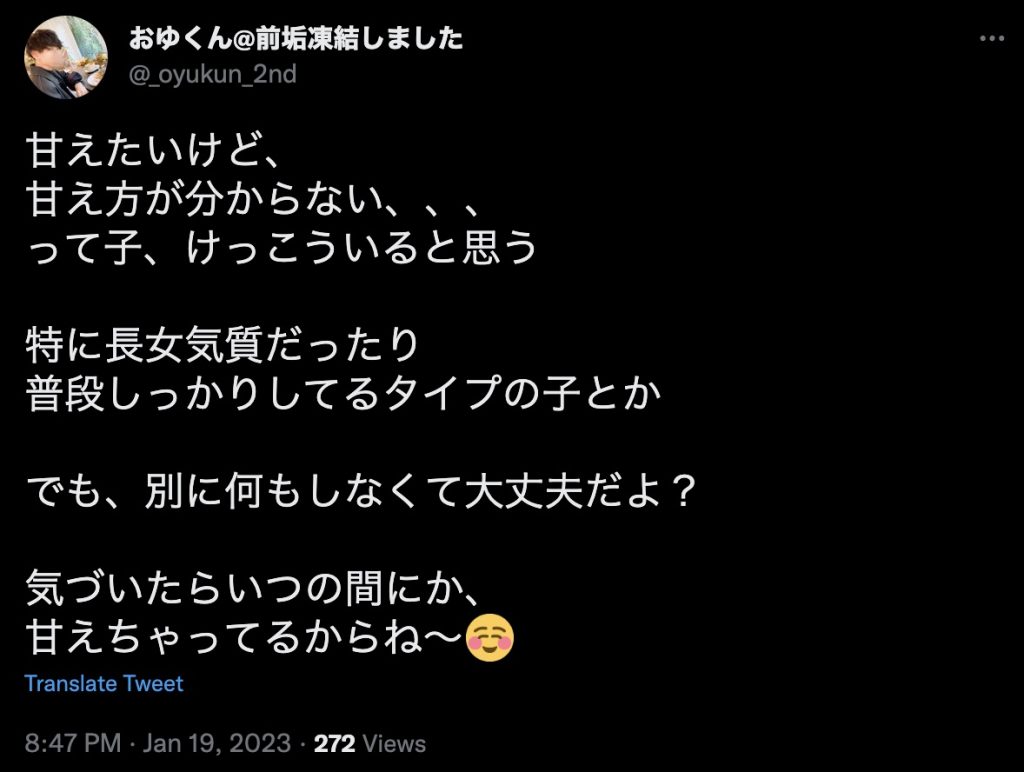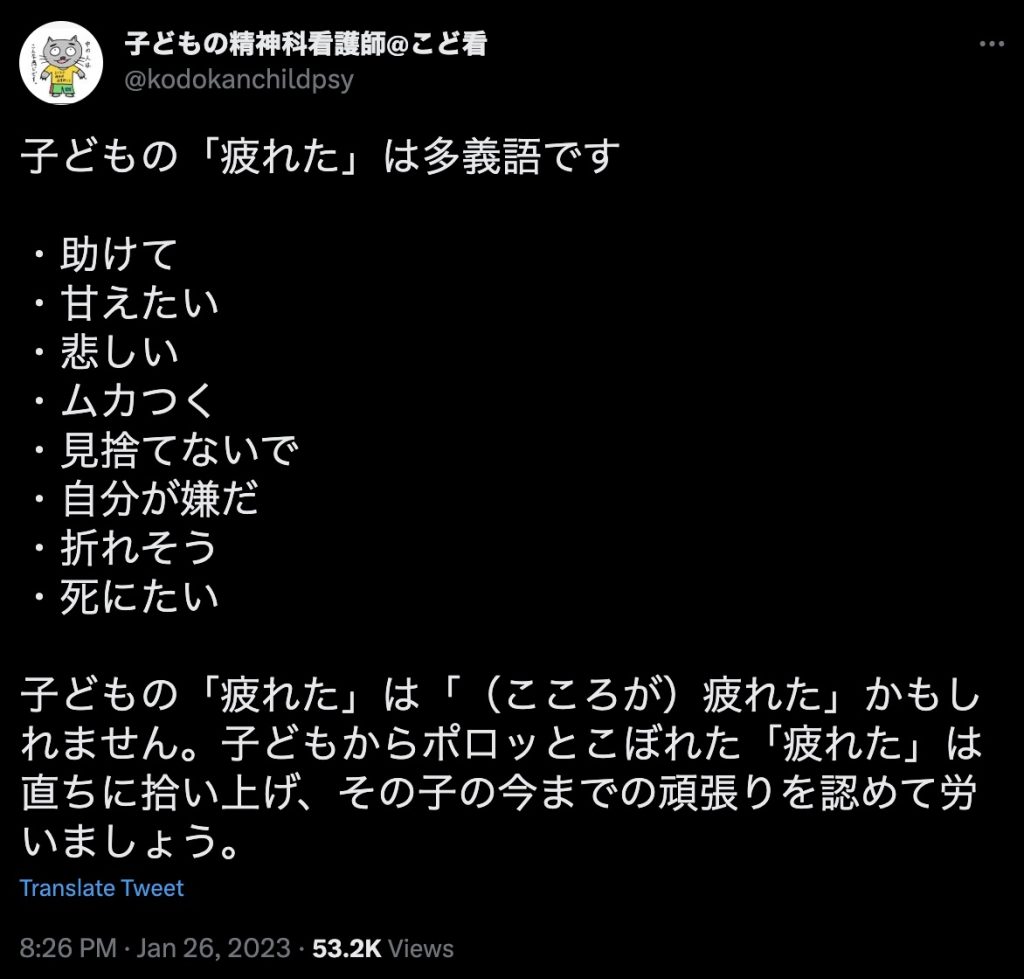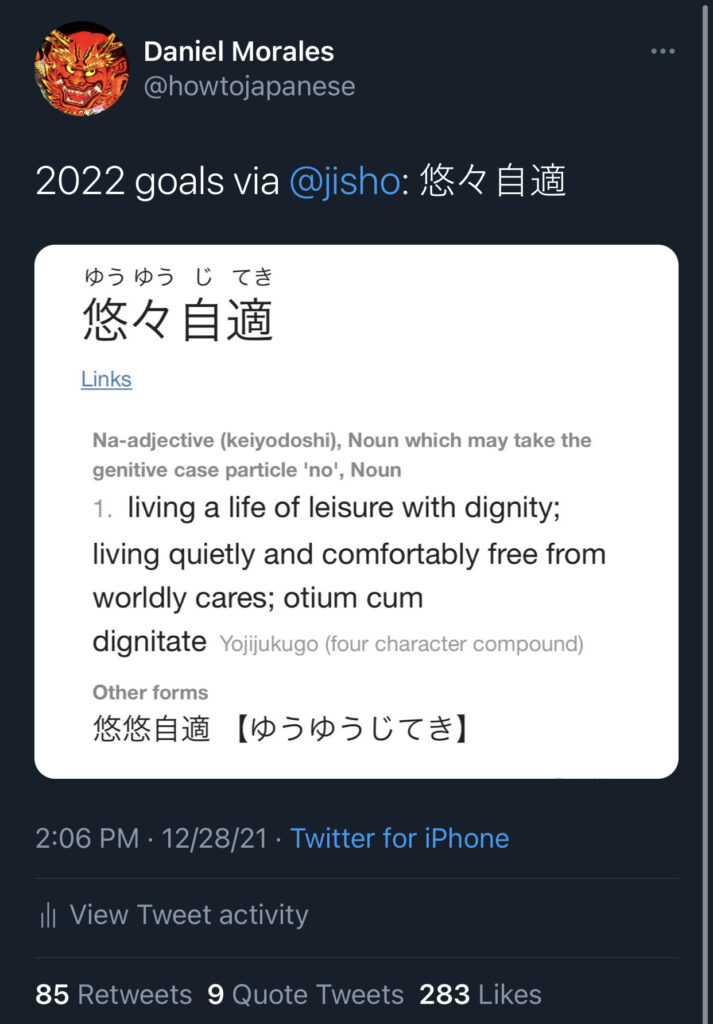The newsletter and podcast are online:
This month I wrote about a word that was rattling around in my head earlier this year. 当日 (tōjitsu, the day it happened/will happen).
I started by looking for some usage examples in Aozora but didn’t want to take up too much space in the newsletter, so I thought I’d look at those here.
I found two examples that might be helpful, both by protagonists using 当日 to narrate past events. Here’s a sentence from writing from Sakaguchi Ango titled 小林さんと私のツキアイ (My Relationship with Kobayashi-san):
私は当夜のことを全てよく記憶しているが、それは当日私が腹をこわして酒がのめなくて、一同の酒宴をただ一人傍観したからである。
I remember everything from the evening of the event very well, and that’s due to the fact that my stomach was upset that day and I couldn’t drink so I spent the entirety of the party just observing people.
“that day” here is 当日, but it carries with it a bit more implication than その日 would. And actually in this sentence we can also see 当夜 (tōya, that night/the night in consideration). Pretty cool how 当 can be attached to so many different things and immediately help clarify relationships within time and context.
And here’s Akutagawa Ryunosuke in 野呂松人形 (Noroma Dolls):
当日、僕は車で、その催しがある日暮里のある人の別荘へ行った。
That day, I went to the person’s vacation home in Nippori where the event was being held.
It’s nice to see that you can just set 当日 there at the beginning of a sentence and immediately orient a reader. I think it’s important to note that it doesn’t even need a particle. 当日は would have a different implication from 当日.
In the newsletter I take a look at the flexibility of 当日. It can be a date either in the future or in the past. These two examples are from the past, but depending on the context, it can easily be something two days, two weeks, or two months from now.





